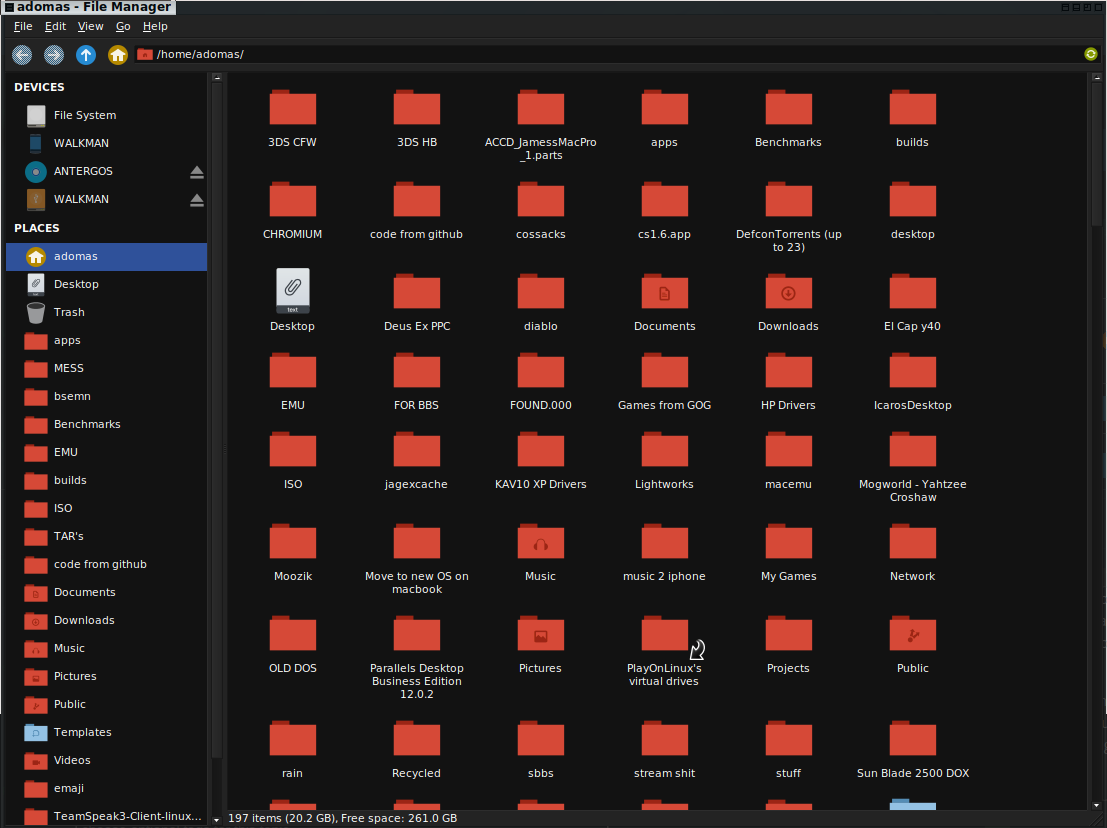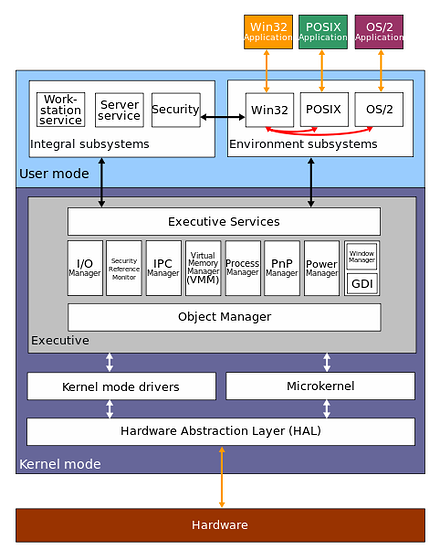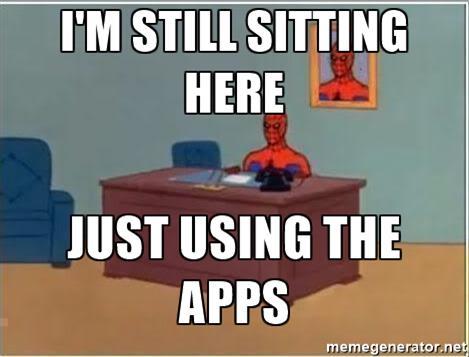This can be quoted of many people on this forum, but for me its always really pissed me off. What do you mean you don't use the OS? Have you ever heard of workflow? What do you do for file management? Whats your device tree? How fast can you get something done in a terminal? I have wanted to do a thread about workflows for a long time but I always thought that was too broad of a spectrum over all and it died pretty quickly. So, instead, a thread about how you actually use the OS you have installed just as much as your apps, you just don't know it. I'll compare windows to linux and if I get something wrong boohoo the last windows I used fluently was XP.
So first, I wanna talk file systems. Yeah its pretty stupid to bring it up, and yeah I bring it up all the time, but I always see Linus and peeps freaking out about SSD speed or gigabit dildos or something retarded. I will also bring up the file management itself in a short moment.
So, NTFS.... ReFS even, but NTFS more specifically for the moment. I hate this fucking thing a lot and I wish MS would just pick up EXT4 or JFS or something. NTFS has been the main FS for 24 years now and while, yes, there have been major changes since then in its development, it hasn't really been going much anywhere for quite a while. The filesystem needs to completely move files to another location, caching is pretty trash, and I don't know if it has any modern sense of journaling. Its slow, frags a LOT, and moving shit around is a pain in the ass. NTFS partitions also are bound to a lock file of sorts; they only become useable if the user of the FS detaches completely with a proper shutdown or demount. If you just hold the power button on your machine and flip to linux the FS is still locked and you can't do shit with it. Huge pain in the ass.
Now let me compare this to XFS, probably the fastest thing on the planet in terms of FS for the common market. While also being about the same age as NTFS, XFS has gone through many different stages of development. The main benefit is that its compression and high performance ratings keep it on edge. XFS keeps a cap on where a file is, and near as I can tell with it just renames where a file is. So, rather than moving some 8GB file from one folder to another and waiting 13 minutes on your 5400RPM laptop drive, its just bam. Done. XFS also has built in Defrag methods, consistantly updated journaling schemes, and file deduplication (which is only experimental in linux) among other things. Basically its like having a stupid fast raid with no load times. You can even pool XFS drives together with an even drive split if doing a raid is too risky for you.
The differences in these FS alone are in the loading speeds and file recall methods. These are the things the user uses the most, and the differences are so drastic it really isn't funny. While yes, with an SSD NTFS is quite fast nowadays, theres nothing that compares to the milliseconds of wait time of XFS. It isn't a contest there, NTFS simply cannot compete.
Now past this, the file system tree itself. In linux you have your home folder for your login profile. In windows you have your system profile. In linux if you open your home folder you can just throw shit in there. Its all right there. Theres nothing hiding, you can organise it however the fuck you want. For instance:

This is my home folder when I open my file manager. My Documents folder, music, video, projects, written items, video scripts, build folders, app folders, everything is there and in one place. I can throw my organisation into the side pane as needed. Its one two done. This is much faster to just have right off the bat compared to the windows file structure.
If you are a windows user and you have your default locations in your file explorer I want you to open it and stare at it. Either it puts you in the My Documents folder or pops you out at the "My Favorites" pane. You can't just throw shit in and around there, its not exactly the most sanitary for that. At that, you don't just have one My Documents folder, you have about 5 or 6. You have the one in your profile, then the public one, then your guest share one, then you have one in appdata local and another one in roaming. In windows I have had it happen countless times that Abiword saves something to an appdata folder rather than my profile folder when I type a document so I have to save to my desktop and then move the thing. Its annoying and apps can get confused sometimes. The closest thing for windows users to have the same setup as the linux tree is to just have all their files in a folder on their desktop or on another drive. Your base config in your file manager is literally just hyperlinks and theres no center for everything to be accessed quickly. You do have the reference tab though.
Next, I want to talk about update systems. I use arch, so I am a CLI junky, but in windows you have WSU. With arch here, all I do is
sudo pacman -Syyuand away I go. I can close yakuake or whatever terminal I have open and just go on with my business. More than likely I never really need to reboot. Even just to suspend is good enough most of the time if at all. 99% of the time I do an update and just let it go in the background. I don't have to check on it to make sure it didn't fail, or lose connection, or have it auto reboot when its done. Unlike linux, windows DOES do all that shit. All the time for me because I'm on wifi in the middle of the country. Updates are hell, so I never really do them which isn't safe. Between the two you really are better off with the way linux does it.
This has turned out to be more of a comparison post than anything, but you see what I mean here? Theres plenty more examples I can make for actually using the OS and the minute differences however so discrete. Even the DE differences and alt tabbing make all the differences, not to mention the compositor, the use of different kernel features, how drivers work... Fuck even separated root and /home setups! Theres so much that people don't realise that they actually do use all the time that its become the common knowledge base that "You don't use an OS, you use the apps"....
And thats bullshit.


